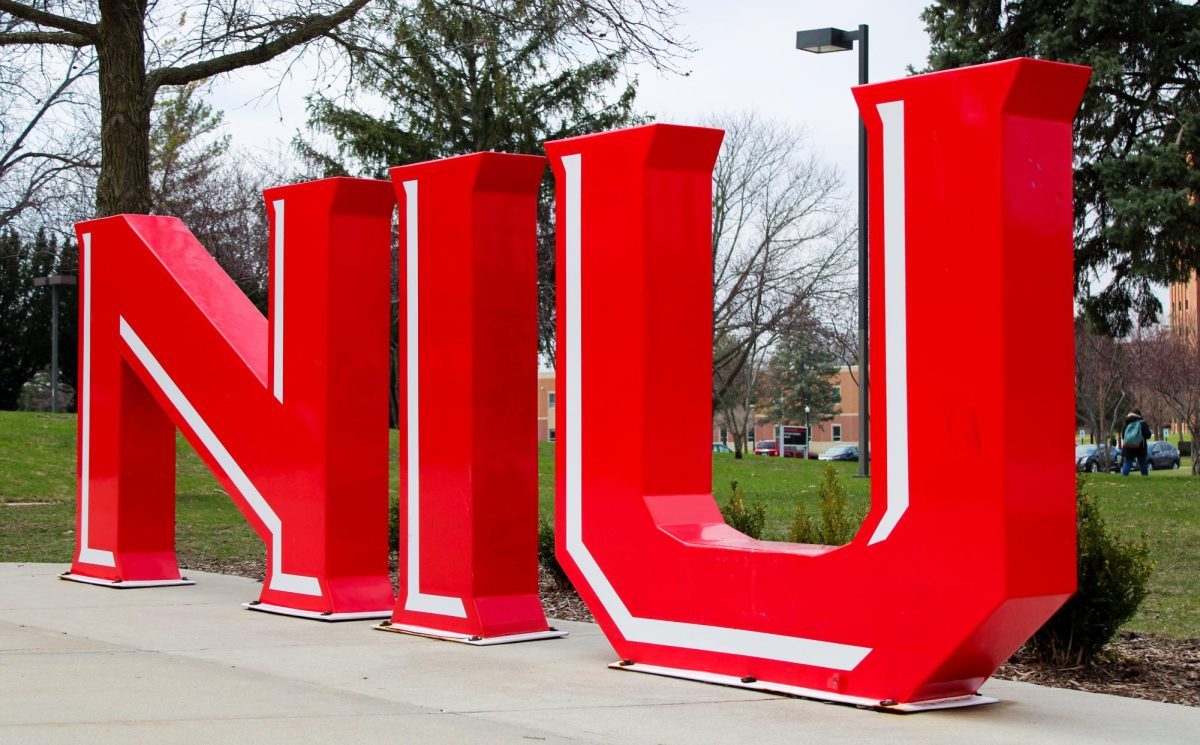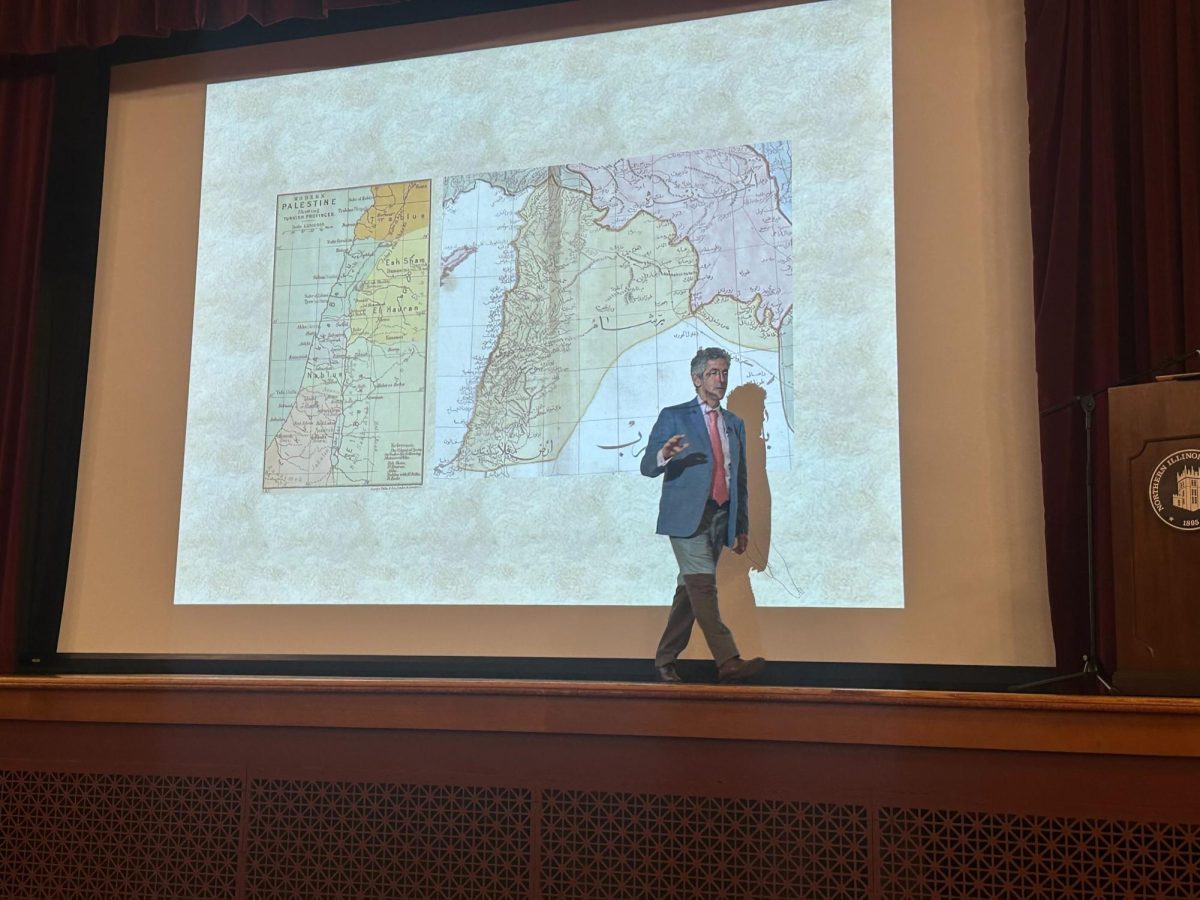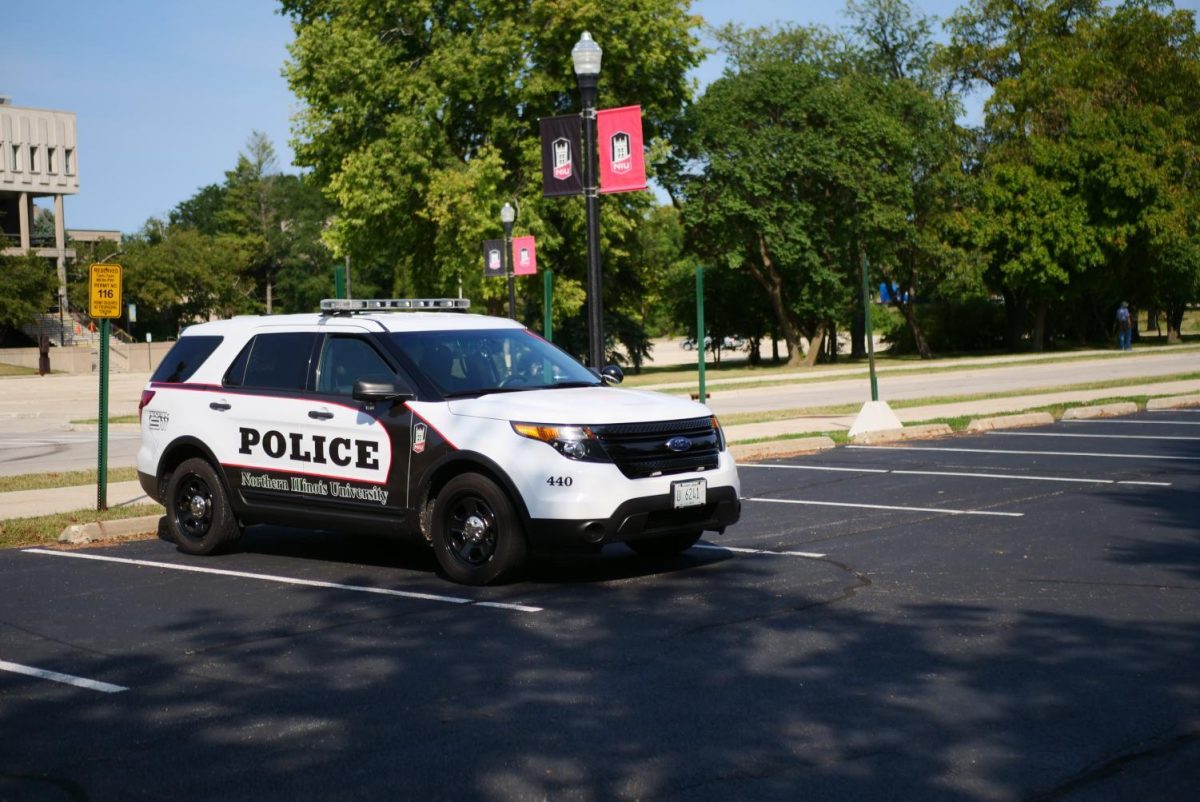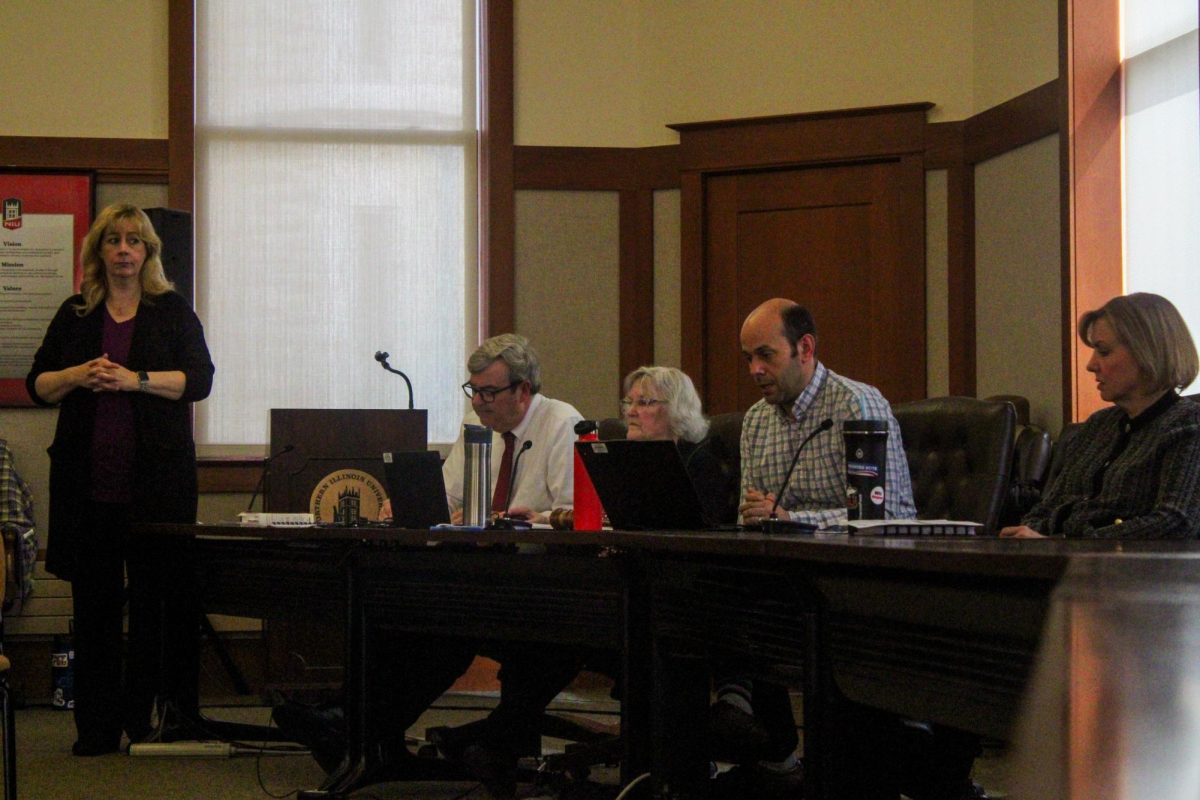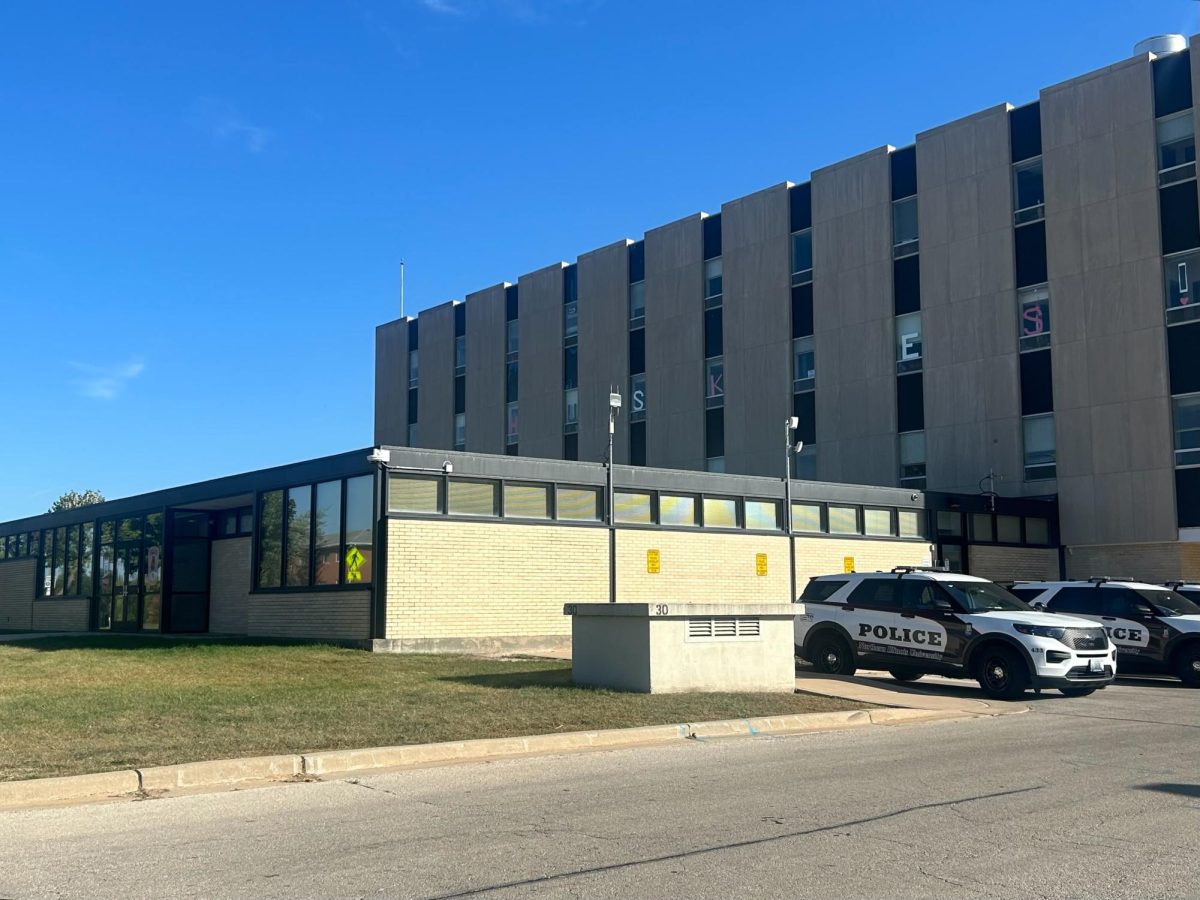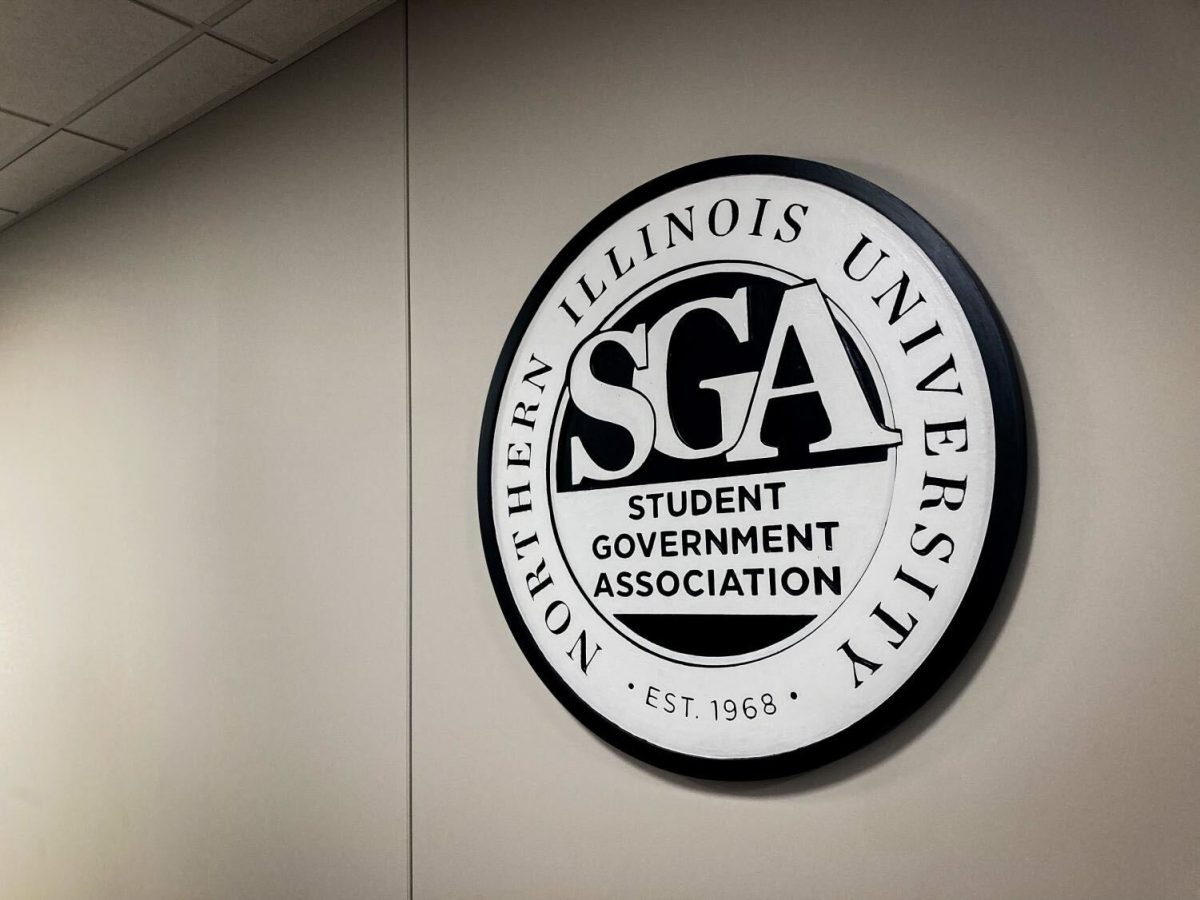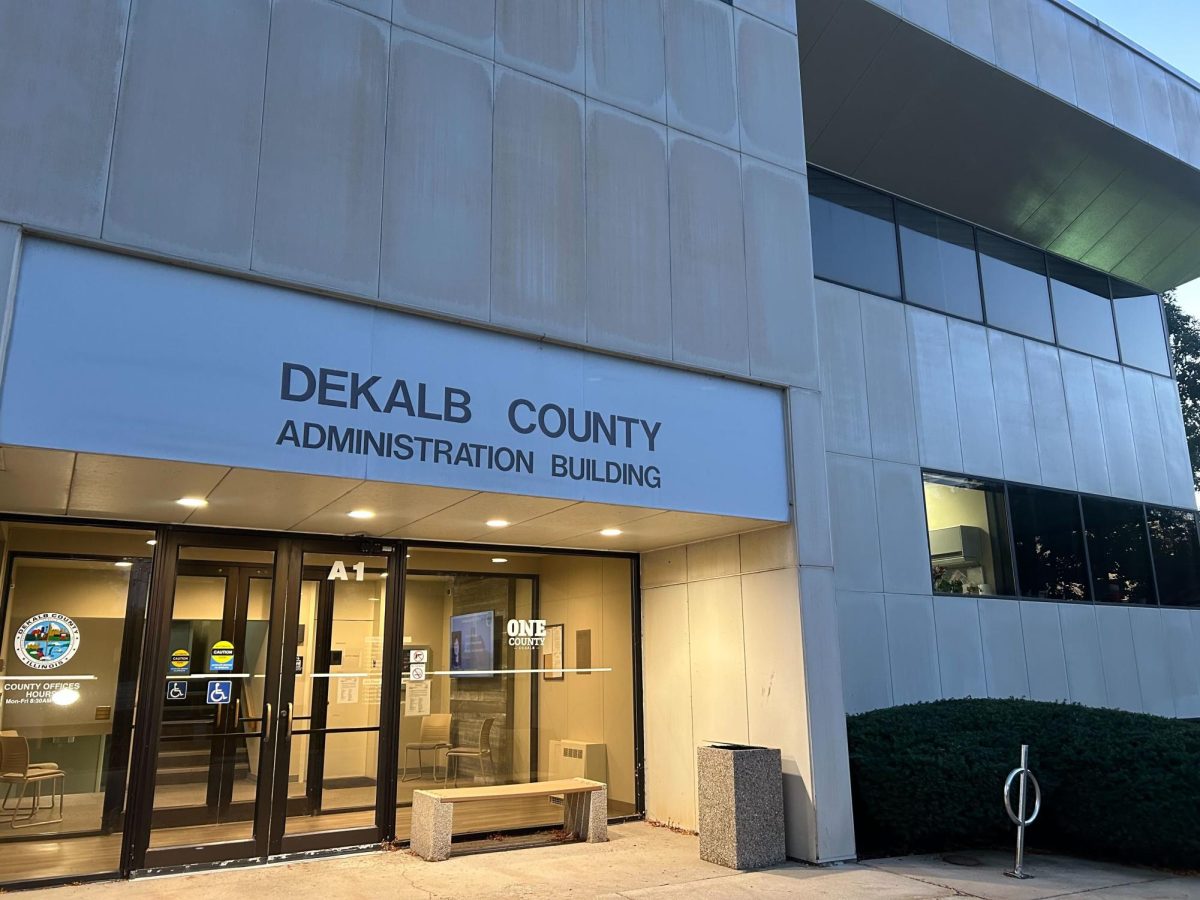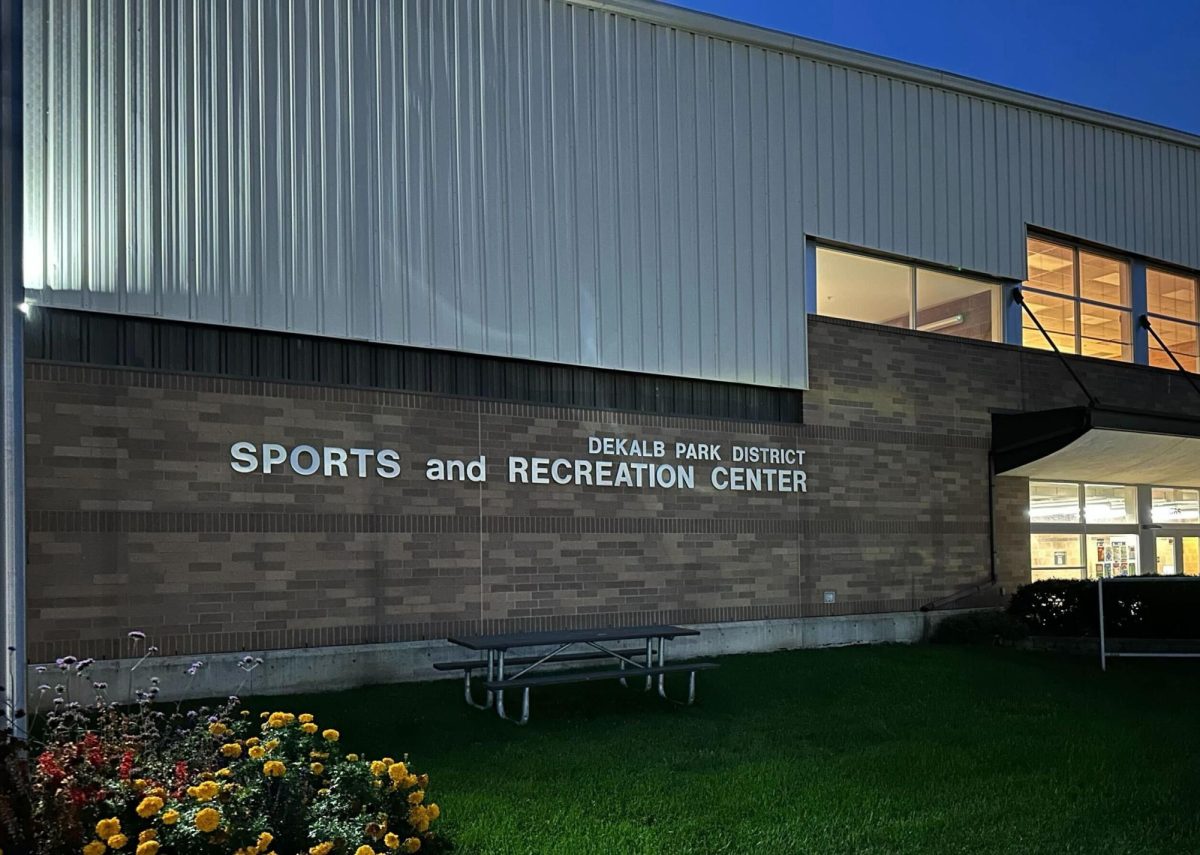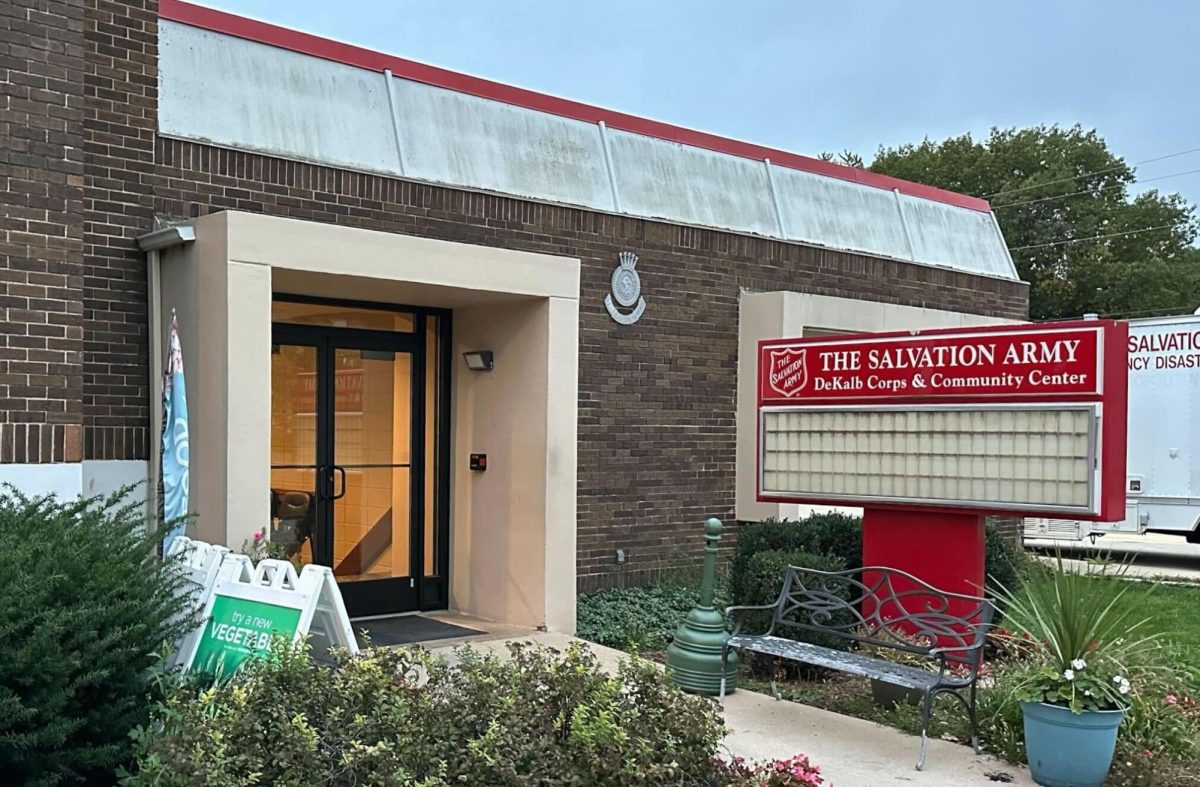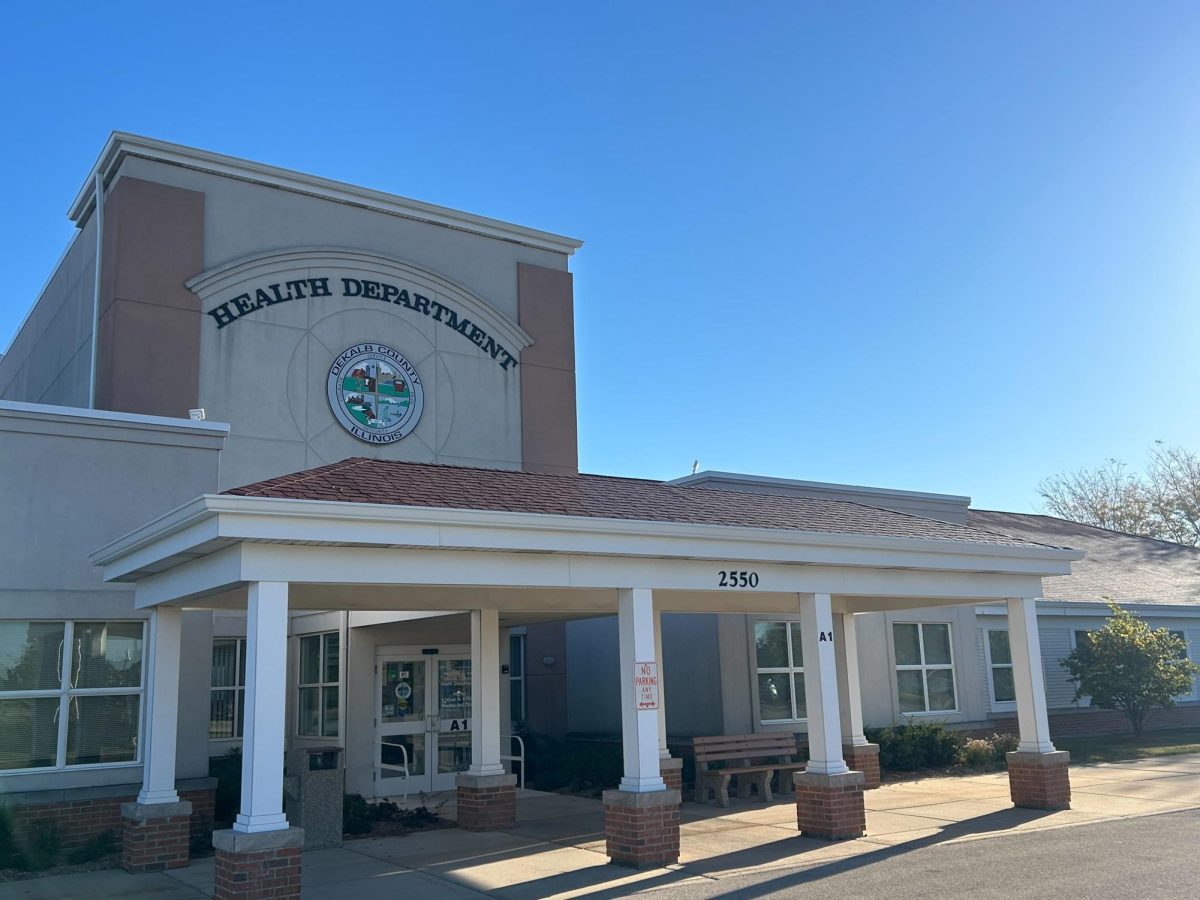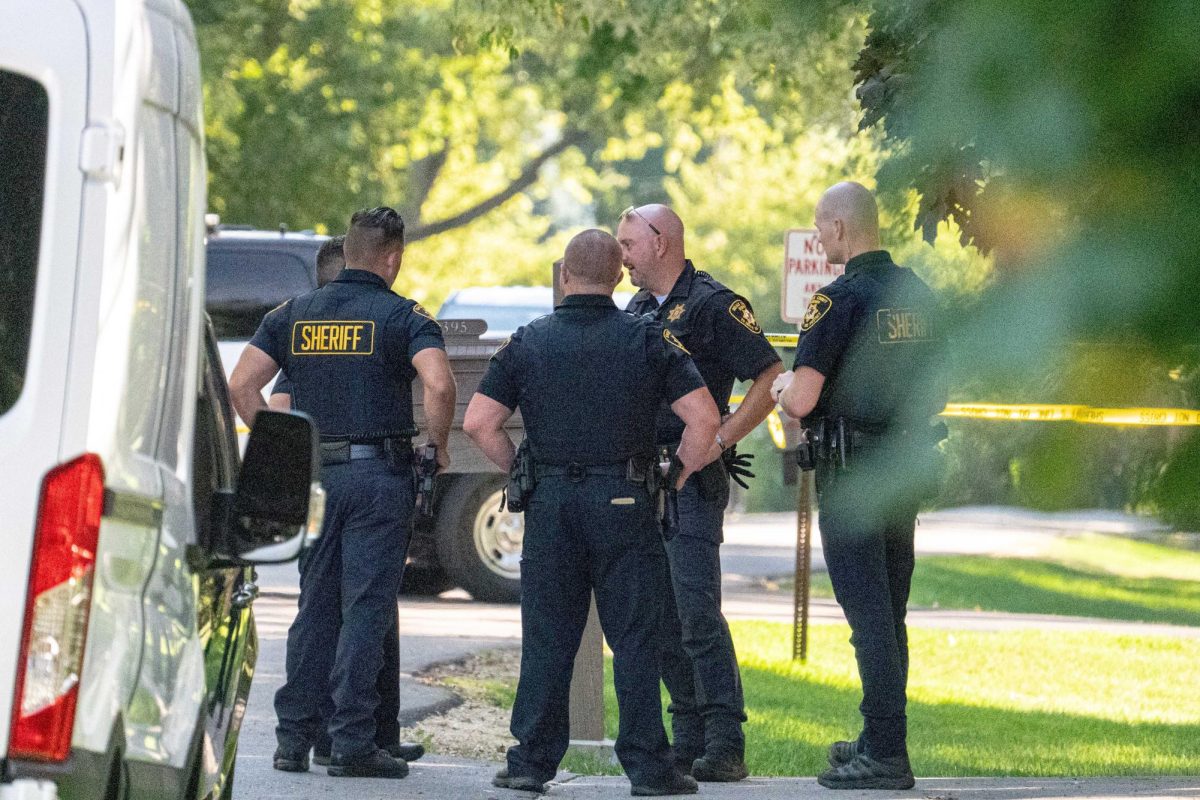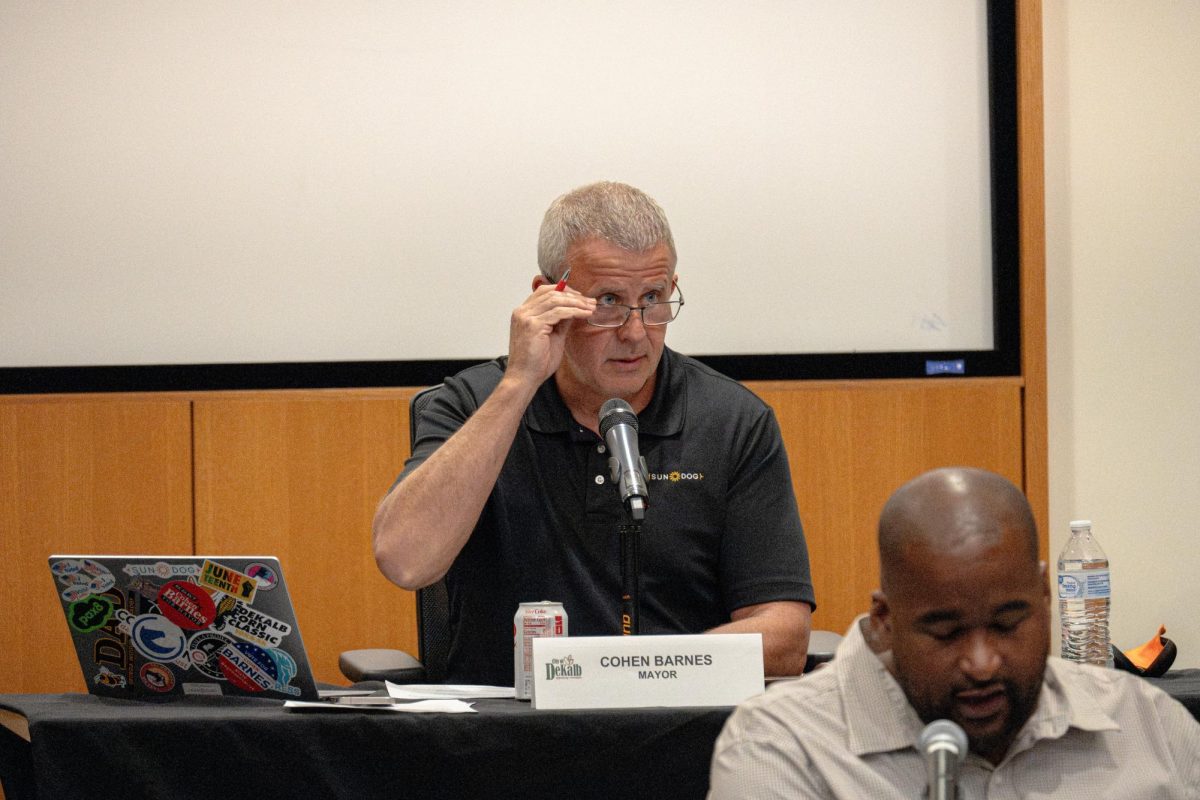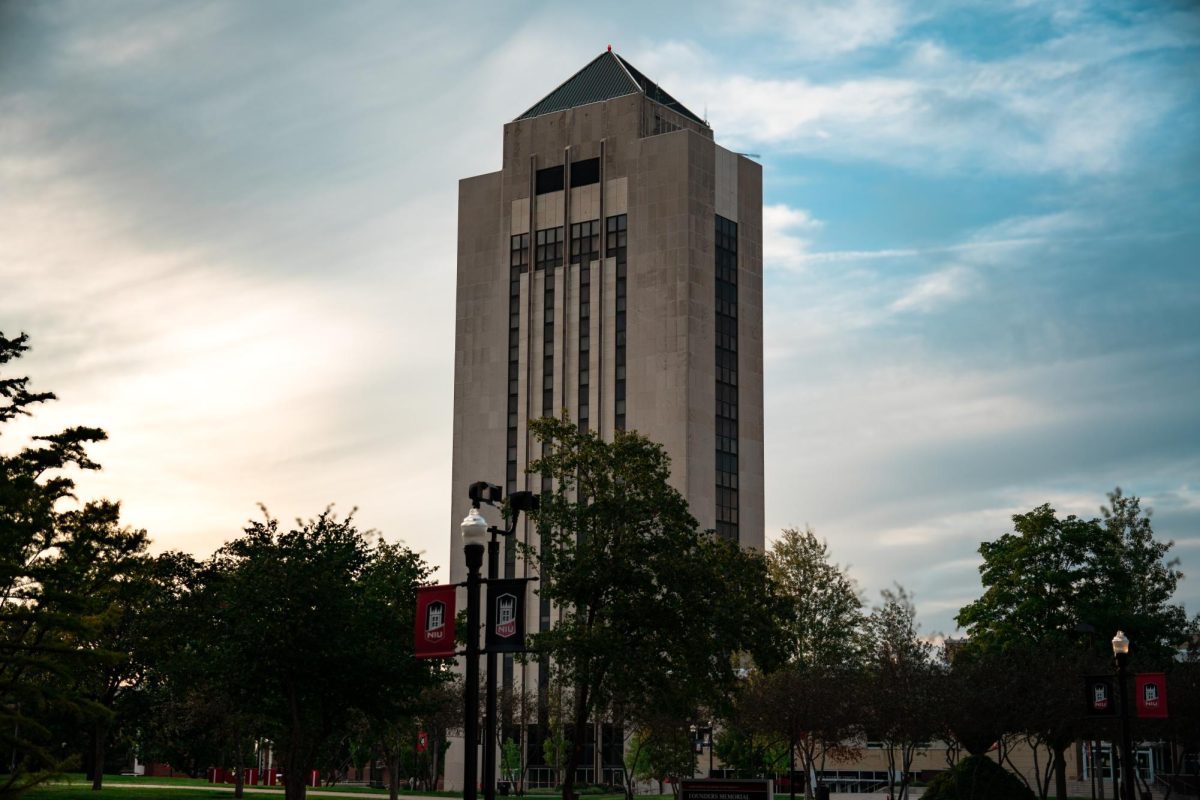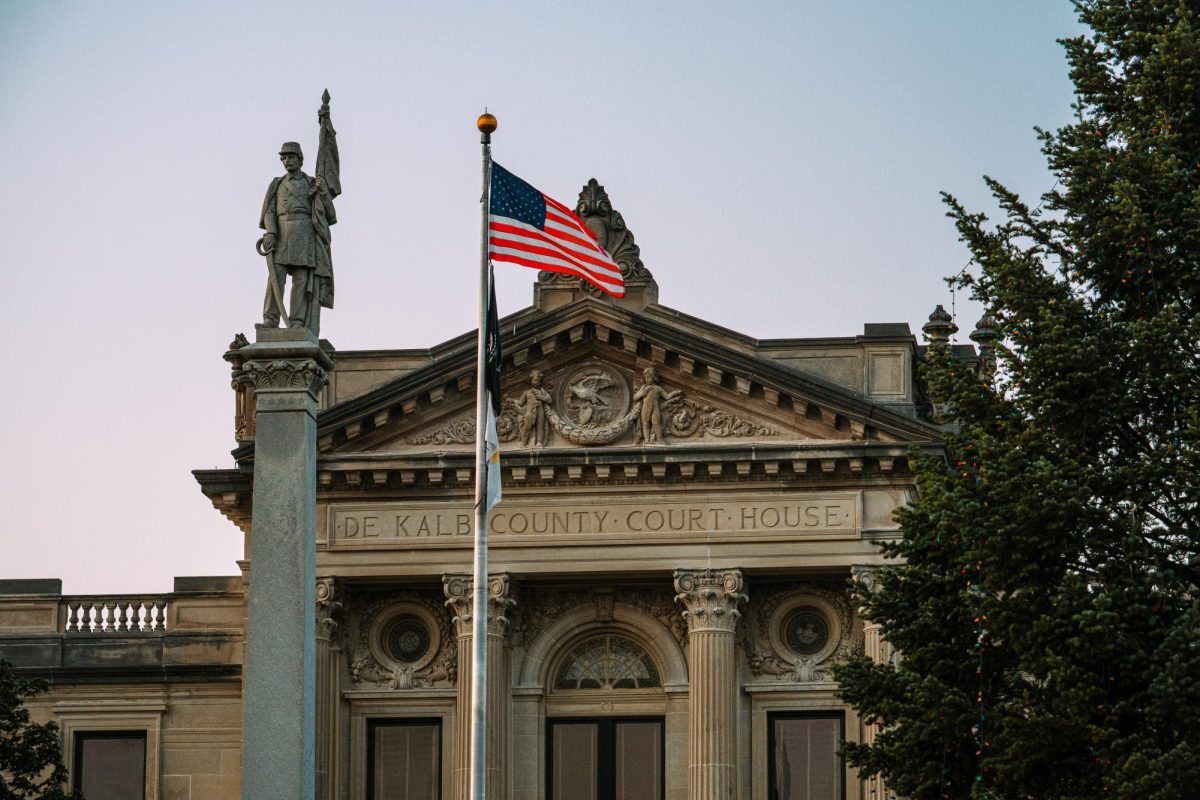DeKALB – In October, NIU announced Matthew Deitch as director of the Northern Illinois Center for Community Sustainability, the university’s planned $23 million research center targeting food systems, water resources and environmental change.
The NICCS facility, which is projected to have its grand opening in late 2026 or early 2027, will be a new research center on NIU’s campus as part of the Illinois Innovation Network. The project was announced in 2018 and was initially planned to start construction in 2023 but has been delayed due to COVID-19 and state bidding process, according to Deitch. The NICCS facility will be located north of the current Center for the Study of Family Violence and Sexual Assault building.
Deitch spoke to the Northern Star about the NICCS project and the funding regarding the project.
Question: Where are we right now in terms of funding? I read that the state provided about $15 million and that the remaining $8 million was going to be fulfilled through private investment and donations, so is that still in the process?
Answer: “Yes, the state allocation for the NICCS building is $15 million. NIU will provide the remaining funding through in-kind contributions, and we also are working to raise additional funds for a number of things including expanding the building’s facilities, adding state-of-the-art equipment, supporting new faculty and growing the Edible Campus program.”
Q: Do any of the proposed NICCS facilities already exist on campus?
A: “There are facilities that we plan to move into NICCS, such as the microplastics laboratory that is currently in Davis Hall. Other equipment will be moved into NICCS lab spaces as well, although the details are not yet worked out. Aside from the physical space, the work of NICCS is ongoing. We have a growing partnership with the Edible Campus program, for instance, which is flourishing across campus. We also have a critical mass of about 80 faculty associates with expertise in a wide range of areas, ranging from the health sciences and electrical engineering to water resources, urban farming and climate change. Faculty are already conducting research in their areas, and one of my priorities will be to nurture transdisciplinary research – to spark innovation by bringing ideas together from different disciplines.”
“Also adding to the momentum for NICCS is the addition of a branch office of the U.S. Geological Survey to the west side of campus. We hope to have the USGS moved into its new home by the end of the year. The USGS already collaborates with some faculty, and the move is expected to stimulate more collaborative education and research efforts across several academic disciplines.”
Q: Why was NIU chosen to receive funding from the IIN as one of the five hubs to have this center for sustainability?
A: “The Illinois Innovation Network is a system of connected university-community-industry-based hubs throughout the state that will work together to drive innovation along with economic and workforce development across Illinois. There are actually 15 hubs across each of the state’s public universities, plus two additional facilities. NIU will host an IIN-sponsored Sustainability Research Conference, likely in September 2025.”
“Several of the IIN hubs address sustainability, although each focus is different. We were chosen to focus on this area because of our existing faculty interests and expertise and because of the challenges that are acute in this region. We are uniquely positioned to take advantage of our peri-urban location at the intersection of suburban, industrial and agricultural land use to investigate how these critical land uses can coexist sustainably.”
Q: How important is this need for a center of sustainability in today’s world?
A: “Sustainability isn’t just about protecting wilderness or monitoring the quality of the environment. True sustainability requires us to build an economic and social-environmental system that meets the needs of the present while allowing future generations to thrive. The past few years have made clear that we are living in times of intersecting environmental and social challenges: climate change, forever chemicals, violent storms and a global pandemic are just a few things that have made resources more scarce and everyday life more difficult.”
“Universities like NIU play a leading role in adapting to these challenges: research and innovation partnerships that span disciplines can provide communities, businesses and farmers with the information and innovations that will advance a sustainable future. Faculty from every discipline of study here at NIU are interested in sustainability. A sustainability center can play that critical role of connecting researchers’ expertise and interest for a sustainable future with the needs of communities to address these challenges. That’s what NICCS will do.”
Q: What is your goal for this project?
A: “Our center – with its focus on addressing water resources, environmental adaptation and food systems innovation through transdisciplinary partnerships – will be unique, although there are pieces or aspects that other universities tackle as well. My goal is to develop partnerships to address our challenges here in Northern Illinois but also thinking about how the solutions we develop can address issues across the globe.”
Q: Is there anything else you’d like to add?
A: “We envision NICCS as a world-class research center conducting important work in the areas of water resources, environmental adaptation and food systems. It will also promote science-based policies and practices for communities near and far. IIN’s goal is to enhance workforce development, and NICCS cements NIU’s commitment to developing the future generation of scientists, resource managers, planners, producers, advocates and other specialists dedicated to developing a sustainable future. At the end of the day, NICCS is so much more than a new building: it’s a program and a state of mind focused on sustainability from different perspectives working together, so that we can lead the development and implementation of a more sustainable future in Northern Illinois and wherever NIU grads go.”



